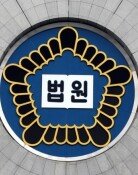U.S. Stance Hardening Against North
On July 9, U.S. Assistant Secretary of State Christopher Hill, the chief U.S. negotiator for the six-party talks, referred to a series of missiles launched by North Korea as Intimidation targeting not only the U.S. but also all [neighboring countries].
Hill, who is on his visit to participating countries of the six-party talks after the North Korean missile launch, reiterated so in an interview on the day with the Dong-A Ilbo at the residence of the U.S. ambassador to Korea in Jeong-dong, Jung-gu, Seoul before heading for Japan. Now in Washington, there are no doves but realists, he said, representing the hard-line stances in the U.S. administration calling for retaliatory measures against North Korea.
North Korea fired the missiles without notifying any of the participants of the six-party talks in advance. Neither China nor Russia knew that, added Hill.
Launching [short-range] Scud missiles, which are unrelated to the test-launch of a long-range missile, is interpreted as blackmailing ones counterparts, said the assistant secretary of state. The measures that each country should take might be different, but we share the consensus that a clear message should be sent to the North.
He also pointed out, It seems that Pyongyang is happy with the results, as its short- and intermediate-range missiles hit the points that it initially targeted during night hours when it is not easy to launch missiles. We cannot just conclude this missile launch is a total failure.
Regarding North Koreas response that it would come back to the talks only when the financial sanctions against it are lifted, he said, If North Korea agrees in the six-party talks, the amount of energy funding they will be receiving from countries involved would make up for the losses ($24 million) from the sanctions against the Banco Delta Asia (BDA). They are making big misjudgments.
Asked if he believes the Norths pushing for the missile launch is a signal that it is no longer interested in dialogue and engagement, Hill avoided making an answer immediately but suggested that stronger sanctions against North Korea be necessary.
Without making a direct answer, he said, North Korea has not been participating in the six-party talks, complaining about such words as axis of evil and outpost of tyranny, suspension of the light-water reactor project and financial sanctions. Nine months since we had the last round of the six-party talks last year, it is now responding by launching missiles.
On July 8 and 9, Hill met Ban Ki-mun, the minister of Foreign Affairs and Trade; Lee Jong-seok, the minister of Unification; Song Min-sun, the director of the Office of Unification, Foreign Affairs and Security Policy Planning; and Chun Young-woo, the director of the Negotiation Headquarters for Peace on the Korean Peninsula, to discuss cooperation in policies for North Korea after its launch of missiles.
He reportedly suggested to the Korean government that five-party talks excluding North Korea be held in case the North does not come back to the six-party talks for a long while, but Chun said, Five-party talks are not an end itself but just an option that can be considered when the six-party talks go wrong.
Jung-Ahn Kim credo@donga.com gun43@donga.com







